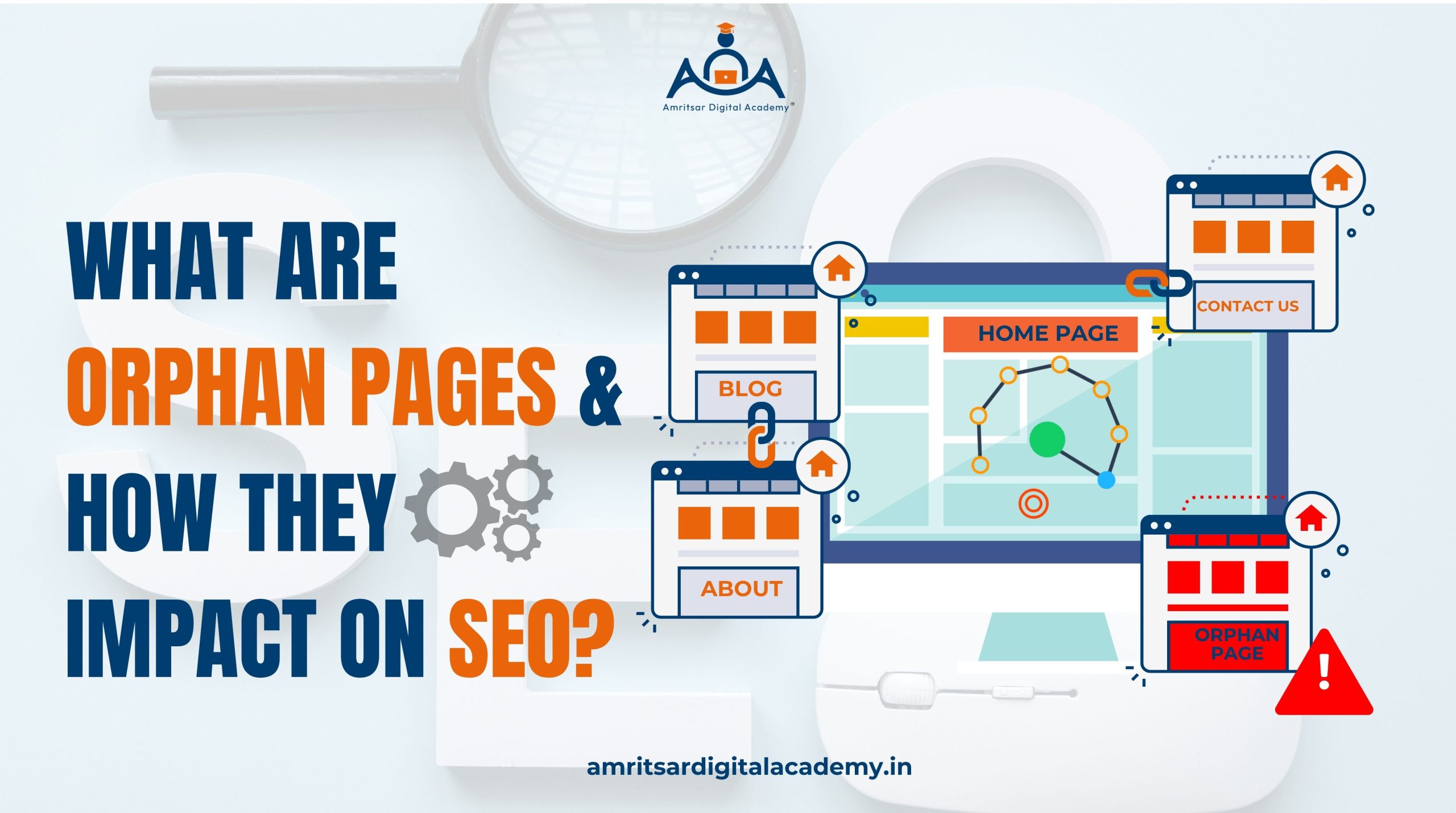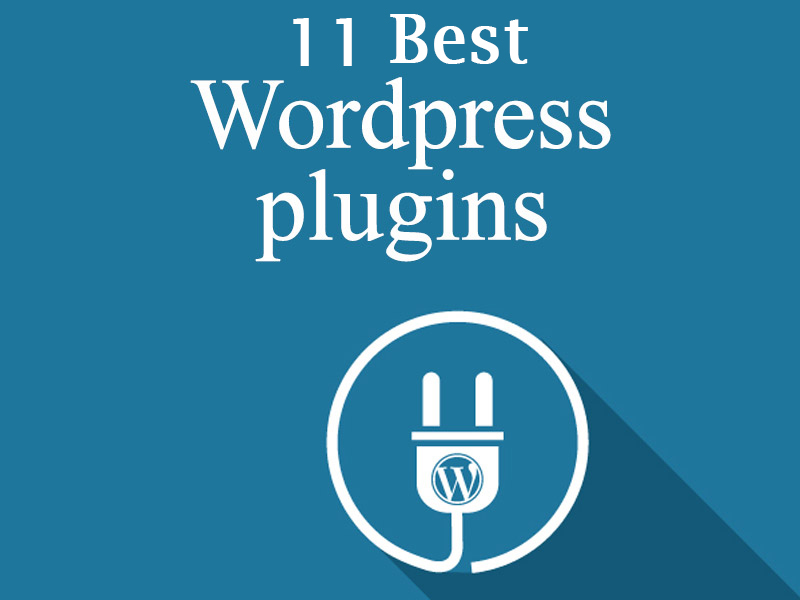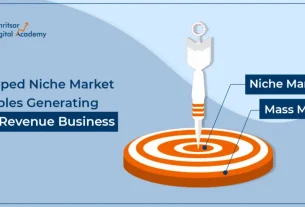Orphan pages are one of the most common SEO issues which sometimes unnoticed. These pages exist on your website but are not linked with other pages of the website. For users and search engine crawlers, orphan pages are invisible, significantly impacting your on-page SEO. Orphan pages negatively impact site structure optimization and affect your overall website performance.
In this complete guide, you will know why these pages can’t be ignored for better SEO performance.

What Are Orphan Pages?
Orphan pages are web pages that lack links from other pages on the same website. This page exists on the website but is separate from the main page of the website. To find these pages is much harder, without internal linking this is difficult but not impossible. Users and search engine crawlers face some difficulty in navigating website pages.
These pages are available outside of the site structure. We can prevent these pages by regular site audits and by improving the SEO of the website.
- Search engines may not discover these pages, leading to incomplete indexing.
- Users might miss valuable content if they can not easily navigate to these pages.
- Orphan pages do not receive link equity from other pages and reducing their ranking potential.
Characteristics of Orphan Pages
Orphan pages have several distinctive characteristics that can impact your website’s SEO and user experience:
- Lack of Internal Links: These pages are difficult to discover because they were not interlinked with any other pages on the website.
- Poor Visibility: Users and search engine crawlers face difficulty in finding these pages which results in less website traffic and indexing issues.
- Isolated Content: The content on orphan pages is isolated, which can lead to disjointed user experience and missed opportunities for engagement.
- Potential Redundancy: Orphan pages might contain outdated content, which can clutter your site and confuse users.
- Reduced Link Equity: Without internal links, hidden pages do not receive link equity from other pages which diminishes their authority and ranking potential.
The Negative Impact of Orphan Pages on SEO Performance
If you are serious about on-page SEO, you must address orphan pages as they can significantly impact your site’s search visibility. Here’s how:

Poor Indexing and Ranking
Search engine crawlers rely on internal links to index the website pages. If your page is not indexed by search engine crawler then your page can not be ranked on the search engine. Even if Google indexes an orphan page with the help of an XML sitemap it might rank poorly because it does not have internal links to boost its authority and relevance.
Also pages without any links are challenging for Google’s algorithm because they lack relevancy signals like anchor text and link context. This can slow down the page’s ranking potential.
Poor User Experience
Every website owner wants to give seamless navigation and ideal user experience to their users. Orphan pages create frustration in user experience which increases the bounce rate. By chance users find your page they feel lost and look for where to go next.
The most important aspect of SEO is your website should be user friendly but hidden pages on your website create discontent for users.
Wasted Crawl Budget
Search engines might waste resources crawling orphan pages and reducing the overall efficiency of your site’s crawl budget. Few hidden pages on the website are not huge problem but hundreds of hidden pages on the website cause significant issues.
Diluted Link Equity
Orphan pages do not receive link equity from other pages which diminishes their authority and ranking potential.
How Orphan Pages Can Affect Your Website’s Authority and Trustworthiness?
Orphan pages on your website not only affect your SEO implications, they also hurt your website authority and trustworthiness. When users visit these disconnected pages they get outdated content and find difficulty navigating back to your main content.
This creates poor user experience, increasing bounce rates and reducing engagement metrics that search engines use to evaluate your site’s quality.
If hidden pages are present they can:
- Make your site look less credible because it seems disconnected and unorganized.
- Lower user engagement as visitors struggle to find relevant content.
- Send negative signals to Google and indicating poor site structure optimization and maintenance
- Affects domain authority since pages without internal links do not boost your overall SEO strength.
Identifying Orphan Pages on Your Website: Tools & Techniques
Finding orphan pages requires systematic approach using various tools and methods. Start by comparing your sitemap against your internal linking structure using professional SEO site audit tools. We know hidden pages are not good for SEO so it’s time to find these pages and fix them too.
XML Sitemap
You can find orphan pages on your website through an XML sitemap of your website. It ensures that all pages on your website are indexed or not. If your XML sitemap is not updated or missing some website URLs you can use additional data sources to find your hidden pages.
Google Analytics
Google Analytics is tool for your website that analyzes the results of website performance including total clicks, impressions, bounce rate, and conversion rates. This analytic tool helps you to find which page of your website is frequently visited by users and which page did not get enough website traffic. With the help of this analytic result, you can get an idea and find orphan pages on your website.
Google Search Console
Another website analytic tool is the Google Search Console which gives you results of your website performance on search engines. This free tool also helps you to analyze core web vital performance and broken links on your website.
This tool provides results of which page of your website gets more traffic or which page does not. The main characteristics of the orphan page i.e. page indexable, it can find indexing issues and crawling errors.
Strategies to Fix and Prevent Orphan Pages in Your Site Structure
Once you find hidden pages on your website, the next step is to fix them for your site structure optimization.
How to Fix
- Not all orphan pages are relevant to keep on your website. If you find your hidden page has outdated and irrelevant content then the best option is to delete or remove these hidden pages from the website permanently.
Tip: If you decide to delete the page permanently make sure you check the page:
- Was not indexed or crawled
- Does not have any backlinks
- Was also removed from the sitemap
- Another better way to fix orphan pages on the website is to add relevant internal links. A single internal link can reconnect an orphan page, allowing link equity to flow and making the page visible to both users and search engines.
- Sometimes you want the page to remain unlinked to your website but you also want to keep this page being indexed by search engines. In this situation, you can add no indexed tags to these pages to tell search engines.
- Implement 301 redirects for outdated or unnecessary pages. With the use of 301 redirects, you can point users to relevant and active pages.
How to Prevent
- Perform regular site audits with tools like Screaming Frog to catch any new hidden pages and address them promptly.
- Make it habit to include internal links whenever you publish new content. This helps maintain connectivity across your site.
- Ensure your navigation menus and footer links include important pages, making them easily accessible to users and search engines.
- Implement breadcrumb navigation to provide users with clear pathways through your site, reducing the likelihood of hidden pages.
Tip: Make sure you are not linking one page to another orphan page.
Conclusion
Orphan pages are silent SEO killers that can degrade your website’s performance, user experience, and overall visibility. By detecting and fixing them, you can enhance your site structure optimization and ensure all valuable pages contribute to your SEO success.
Stay ahead in the SEO game and regularly audit your website for hidden pages. Optimize internal linking, and leverage Google Analytics and site audit tools to maintain clean and well structured site. The sooner you address this issue, the better your search rankings and user experience will be.
Take action now to eliminate orphan pages and boost your SEO!
Frequently Asked Questions(FAQ’s)
Q1. How to fix orphan pages in WordPress?
Ans. To fix orphan pages in WordPress:
- Use site audit tools like Screaming Frog or Google Search Console to find them.
- Include links to these pages from other relevant content.
- Ensure important pages are in your main menus.
Q2. How do I remove orphan pages from the sitemap?
Ans. To remove orphan pages from your sitemap you can simply update your XML sitemap and exclude the URLs of the hidden pages. Then submit the updated sitemap to search engines.
Q3. How do orphan pages affect on-page SEO?
Ans. Orphan pages hurt SEO by making it harder for search engines to find and index them. They lack internal links which means they do not get link equity, leading to poor ranking and visibility. Plus they can negatively impact user experience and site organization.
Q4. Can I Find Orphan Pages Without an Automated Tool?
Ans. You can manually check for hidden pages by finding pages on your website that aren’t linked to other pages, without using an automated site audit tool. Review you site’s navigation, content links, and sitemap to identify these pages. Regularly auditing your site can also help spot and fix orphan pages.




